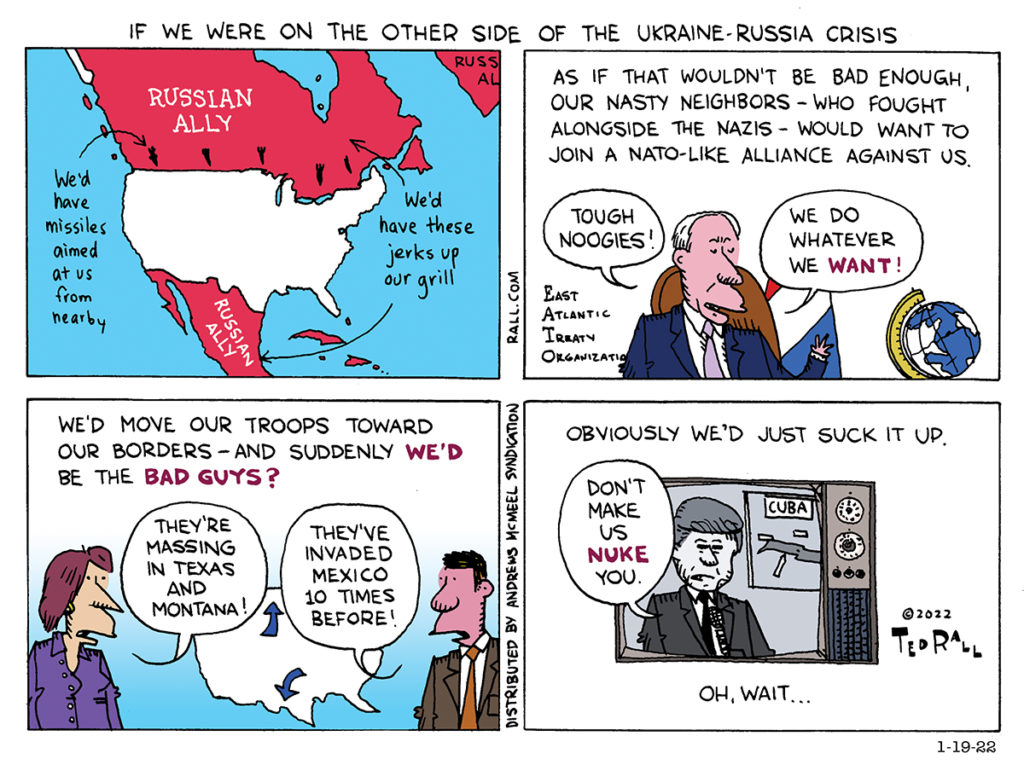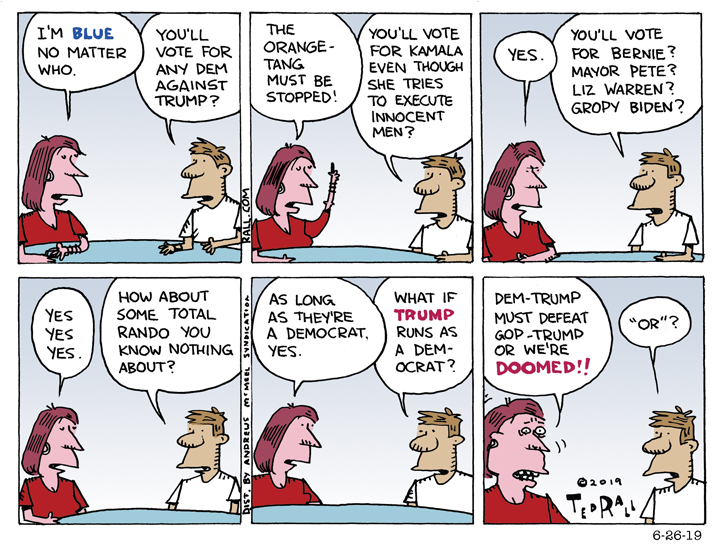The Final Countdown – 7/14/23 – “I Am Not a Fed” Epps Sues Fox
Angie Wong: Journalist
The Final Countdown – 7/12/23 – NATO Renews Long-Term Vow to Back Ukraine Against Russia
The Final Countdown – 7/10/23 – Turkey to Join EU in Exchange for Approving Sweden to NATO?
Scott Stantis: Cartoonist for The Chicago Tribune
The Final Countdown – 6/16/23 – Pentagon Leaker Indicted on Six Counts
The Final Countdown – 5/18/23 –
On this episode of The Final Countdown, hosts Manila Chan and Ted Rall discuss hot topics, such as the Ukraine-Russia grain deal extension.
DMZ America Podcast #75: Trump Runs Again. NATO Almost Starts WW3. What Should the 2024 Campaign Be About?
Donald Trump is running a third time. Editorial cartoonists Ted Rall and Scott Stantis discuss his prospects and possible challengers, as well as the media’s attempt to pretend he doesn’t exist. A stray Ukrainian missile kills two people in Poland, Poland blames Russia and NATO almost goes to war with Russia over the mistake. Did Russia have a point about an intertwined military alliance along its border? Finally, a contrast between what the 2024 campaign will look like and what, in a saner country with a functional political climate, it should be about.
If We Were on the Other Side of the Ukraine-Russia Crisis
First the United States and its allies pressure Russia by placing missiles in Poland, near its border. Then the West tries to expand NATO right up to the Russian border, by inviting Ukraine to join. When the Russians respond by massing troops along their own border, we have the unmitigated nerve to say that they are provoking us.


